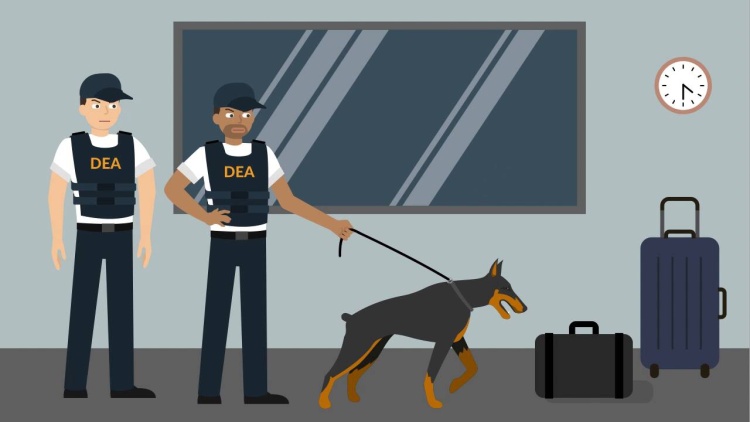United States v. Place
United States Supreme Court
462 U.S. 696 (1983)
- Written by Angela Patrick, JD
Facts
In Miami, airport police officers became suspicious of Raymond Place (defendant), who was buying a ticket to New York. The officers contacted Drug Enforcement Agency agents in New York. After Place claimed his two bags at the New York airport, the agents approached him. Place did not consent to a search of his bags. The agents seized Place’s bags, telling him they were going to get a search warrant. The agents invited Place to accompany them, but he declined. Without telling Place when or how he would get his bags back, the agents took the bags to a different airport. There, 90 minutes after the agents had seized Place’s bags, a trained narcotics-detection dog reacted to one bag. Based on the probable cause supplied by the dog, a judge issued a search warrant for that bag. The search revealed cocaine. Place was charged with possession with intent to distribute. Place moved to suppress the cocaine evidence, arguing that his bags had been unreasonably seized in violation of the Fourth Amendment. The district court denied the motion, ruling that the agents could seize the bags because they had reasonable suspicion that the bags contained drugs. Place pleaded guilty, reserving the right to appeal. The United States Court of Appeals for the Second Circuit reversed, ruling that the agents were not allowed to detain Place’s bags for longer than an investigative detention, also known as a stop-and-frisk, and that they had detained the bags too long. The United States Supreme Court granted certiorari.
Rule of Law
Issue
Holding and Reasoning (O’Connor, J.)
Concurrence (Brennan, J.)
Concurrence (Blackmun, J.)
What to do next…
Here's why 907,000 law students have relied on our case briefs:
- Written by law professors and practitioners, not other law students. 47,100 briefs, keyed to 996 casebooks. Top-notch customer support.
- The right amount of information, includes the facts, issues, rule of law, holding and reasoning, and any concurrences and dissents.
- Access in your classes, works on your mobile and tablet. Massive library of related video lessons and high quality multiple-choice questions.
- Easy to use, uniform format for every case brief. Written in plain English, not in legalese. Our briefs summarize and simplify; they don’t just repeat the court’s language.





